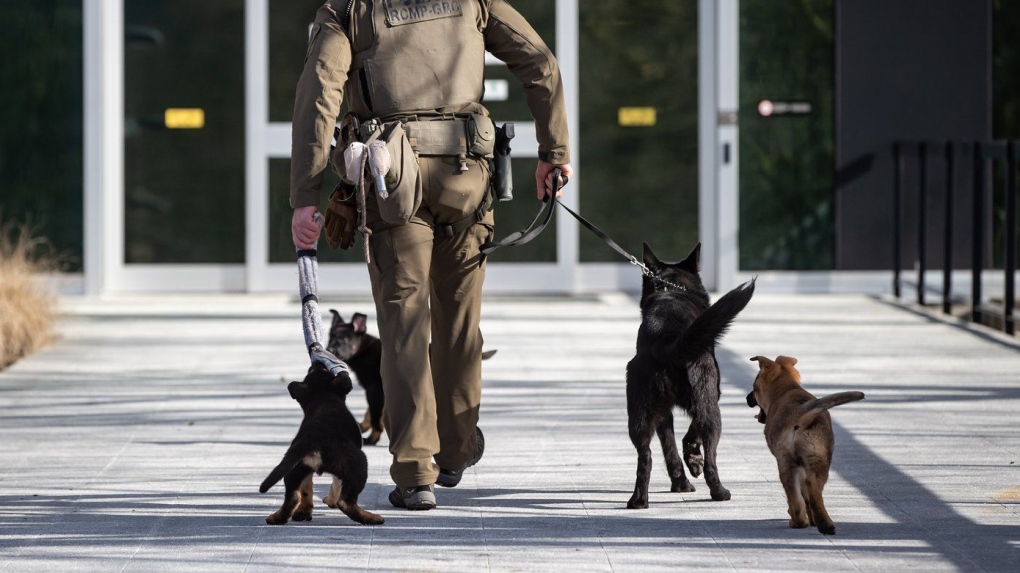The RCMP’s police dog training center suffers from understaffing, low morale and dilapidated facilities, posing health risks to officers and dogs, an internal investigation says.
An evaluation of the RCMP Police Dog Service reveals many challenges to the program, which supplies and trains four-legged helpers to protect VIPs, support emergency teams and sniff out suspects and illegal drugs. Ta.
Reviewers examined the governance and delivery of police dog services between 2018-2019 and 2023-2024, based on interviews and surveys conducted across RCMP departments and training centres.
The assessment found that front-line members have valued canine services dating back to 1935, when the RCMP purchased its first puppy.
The RCMP has come to rely on its own breeding program due to the price and demand for German Shepherds.
Imprinting begins when a puppy passes a seven-week test and is paired with an RCMP member who is an aspiring handler and has completed a special course.
Training begins when the dog is one to two years old and aims to help the handler and animal become an effective team.
The reviewer found that the breeding program is essential to the service and provides a sufficient number of dogs to support the program.
However, there were many challenges, including a prolonged imprinting process, lack of imprinting personnel and resources to support training delivery, limitations on the frequency and type of courses available, and poor infrastructure at training centers. .
Only 17 of the 26 positions were staffed at the training center during the study period. Some employees said even with full staffing, more positions are needed to meet the demands of front-line law enforcement.
In 2005, the center had seven trainers and 125 canine teams on site. In 2022, the center had eight trainers and 157 teams working.
Some interviewees reported not having enough dog handlers to cover absences due to holidays, vacations, training, or illness. Dog owners said they often take their gear and dogs with them on vacation so they are ready to use when needed.
“The[training center’s]working conditions and infrastructure pose a significant risk to the health and wellness of employees and dogs,” the assessment states.
The report notes that an audit conducted in early 2023 found the training center lacked 11 of the 13 psychological factors needed to maintain a healthy workplace.
The evaluation seemed to confirm that finding, with interviewees stating that they had little control and felt overworked. They also cited poor communication and pointed to program management as “contributing to low morale.”
Many handlers have refused to house police dogs at Alberta’s police dog training centres. This is because kennels can cause a lot of stress and potential health problems.
Stress factors included lack of natural light, not allowing the dog to go outside, and noise during feeding and cleaning. Possible hazards include choking from chewing on loose flooring, lead poisoning from eating paint flakes, and respiratory illnesses from poor ventilation.
Canine service teams also faced health risks on site.
Military personnel often participate with emergency response teams on high-risk calls, but often lack safety equipment such as night vision goggles, ballistic helmets and protective masks, the review said.
Furthermore, handlers were often working overtime and were often on standby.
“Interviewees reported that the job was having a negative impact on their physical and mental health, and several suggested that they should have access to a psychologist who understands stress.”
The evaluators made several recommendations to address health and safety concerns, as well as program policies, reporting structures, sustainability, and training.
The RCMP management response included in the assessment outlines a number of actions planned over the next year and beyond to make improvements.
This report by The Canadian Press was first published Dec. 14, 2024.

